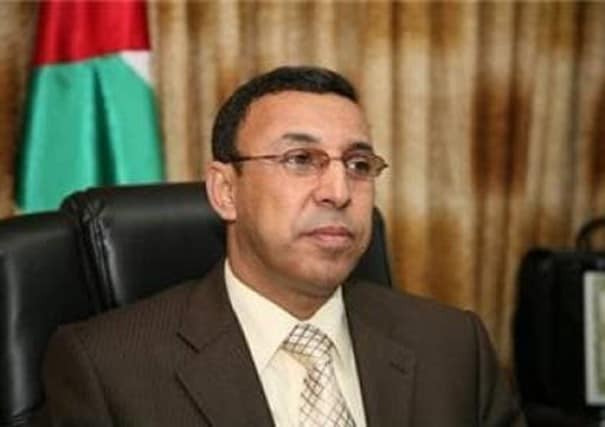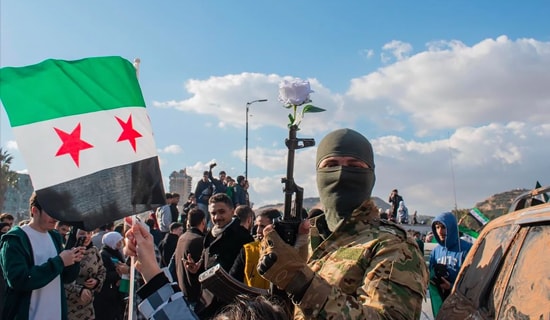In an article in the Palestinian daily Al-Ayyam, Ashraf Al-Ajrami, a former Palestinian Authority (PA) minister of prisoner affairs, responded to recent remarks made by Hamas leader abroad Khaled Mashal, who said that only resistance will lead to the liberation of the Palestinian people.[1] In the article, titled "Destruction of Gaza – Is This the Price of Liberation?", Al-Ajrami wrote that Hamas is deluded, because the October 7, 2023 attack did not liberate the Palestinians but rather caused them harm that will last for generations and brought about "a new Nakba, greater than that of 1948." He called on Hamas officials to stop chanting bombastic slogans and recognize that the attack was an ill-considered escapade that led to the loss of Gaza.

Former PA prisoners affairs minister Ashraf Al-Ajrami (Image: Samanews.ps, September 16, 2017)
The following are translated excerpts from his article:[2]
"Khaled Mashal, a member of the [Hamas] Political Bureau and the movement's leader broad, caused a furor and provoked angry responses when he attempted to justify the tremendous and historically-unprecedented destruction caused to Gaza in this war -- [the war] of collective extermination that Israel launched and is still waging there in response to Hamas' October 7 attack on the Gaza border last year -- by claiming that this is the price of liberation and the price of resistance.
"Far from the squabbling among the [Palestinian] factions, let us try to analyze Mashal's claims and understand whether he is right or this is [just] an attempt by Hamas to evade responsibility and present the events as a natural and fitting [part of] the Palestinian people's struggle for the liberation of its homeland and as a price it must pay for liberation.
"As a matter of fact, I did not wish to broach the topic of who is responsible for the great disaster that has befallen the Palestinian people in Gaza. I preferred to leave this assessment for the post-war phase, since the top priority [right now] is the immediate cessation of the war… But when Mash'al speaks with such confidence and such contempt for the lives of tens of thousands of civilians who were killed, his statements should be discussed…
"Some might say that, were it not for the Hamas attack, the Palestinian cause would not have returned with such force to the international agenda, and the two-state solution would not have been put forward in this way, as the top priority of the international approaches seeking to create a state of stability and security. It may also be true that the war accelerated the recognition of a Palestinian state by European and other countries, given that the issue of recognition was under discussion in several European countries [even] before the war.
"Moreover, the popular activities in solidarity [with the Palestinians] in the U.S., throughout Europe and all over the world are [indeed] unprecedented. Israel has never been in such a terrible position in the international arena. It is isolated and accused of committing war crimes, and the sword of justice is pursuing its leaders, who may be arrested and brought to trial at the International Criminal Court. All this is true and there is something [even] bigger and deeper, but it is happening due to the great loss of life and property suffered by the Palestinian people in this war, and due to the Israeli crimes that no one could have imagined.
"Many among us in Palestine and in the Arab world believe that Israel is about to collapse. Some [even] spread the idea that it has already begun to collapse and that we will soon celebrate the end of the Zionist enterprise, which has started to erode from within, and that its [internal] struggles and controversies, which have increased because of the war, are undermining its stability. This [opinion] assumes that Israel is defeated to an extent that will cause it to fall apart.
"[But] the truth is that the problems in Israel and the controversies within it existed before [the outbreak of] the war and after it, and they increase and decrease depending on the type and composition of the governing coalition. But this in no way indicates the imminent collapse of the [Israeli] state, for it still has means of survival that allow it to solve its problems, whether by resorting to the law or through elections. Furthermore, its economy is still strong and it is capable of enduring for a long time yet. The important point is that Israel, which was established by means of an international resolution, still preserves its status in [the array of] Western imperialist interests, and there are those who are ready to support it and stand with it in every situation -- so much so that a total Israeli defeat has become a taboo and a red line for the U.S. and for many Western countries.
"And we, what do we have today, except for tremendous destruction and division, and no vision whatsoever regarding the day after the war? This will bring us to a new Nakba, greater than that of 1948. Whoever believes that we will quickly restore Gaza to the way it was before the war, if not [to a better state], is completely delusional. According to the UN, restoring Gaza to the way it was before will take at least 20 years. We lost more than 40,000 citizens who were killed, and more than 80,000 were wounded, many of whom are handicapped, and many of whom will not survive in the absence of any ability to treat their injuries. Furthermore, we have lost most of our assets in Gaza, including infrastructure that was built over decades.
"What is even worse is the [new] threshold of Hamas' demands. It no longer demands the liberation of [Palestine], Jerusalem or the West Bank, but only part of what it previously had in Gaza, [namely], an end to the war and an [Israeli] withdrawal, the return of the displaced [Gazans], and [its own] survival. In other words, it wants to take care of itself and agrees to be weaker than it was before and even to give up the control of Gaza, in exchange for [some] political and security role.
"So has the 'resistance' led to liberation in this sense and in this reality? Absolutely not. On the contrary, it [has led to] greater damage, whose price we will pay for generations to come. If Hamas purports [to have a sense of] national responsibility, it must stop the discourse of slogans that have destroyed us and face reality by recognizing that it perpetrated an ill-considered escapade that led to the loss of Gaza, and no one knows what will remain of [Gaza] and who will remain there in the days to come."
[1] Appearing on a June 26, 2024 discussion panel about the Al-Aqsa Flood operation (Hamas' October 7, 2023 attack on Israel) and the internal Palestinian situation, Mash'al said that resistance is the only option and called on everyone in Gaza and in the West Bank to take part in it. He expressed doubt that striving for a Palestinian state will lead to the liberation of the Palestinian people, and claimed that it is actually the resistance that will create a political horizon. As evidence, he noted that the Al-Aqsa Flood operation has led to unprecedented changes in the course of the Palestinian cause, which until the attack was in a coma: it shattered Israel's strong image, led to a political earthquake within Israel and caused it to disintegrate. Moreover, Mash'al claimed, this event placed Gaza at center of global attention in Europe and in the U.S., where people have begun to talk about Palestine "from the river to the sea," about Israel's disappearance and about the resistance (Hamasinfo.info, June 26, 2024).
[2] Al-Ayyam (PA), July 3, 2024.





